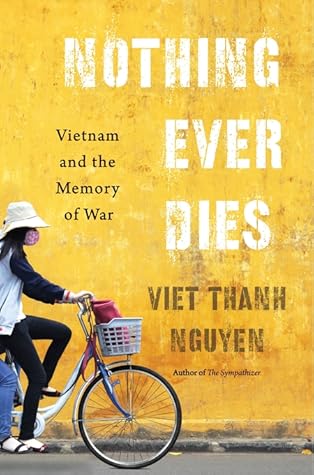More on this book
Kindle Notes & Highlights
Read between
April 10 - August 23, 2017
“Everyone should know one simple statistic: the Washington, D.C., memorial to the American war dead is 150 yards long; if a similar monument were built with the same density of names of the Vietnamese who died in it, [it] would be nine miles long.”31 This mnemonic reality for many Americans, where
Fighting against terrorism and terror, these former others hope to affirm their belonging to America itself, in their own eyes and those of their fellow Americans.
The others are discounting America's history of persecuting her others while still in service, in uniform, to ratify their identity as others over citizenship and service.
we remember our humanity and the inhumanity of others, while we forget our inhumanity and the humanity of others. This is the ethical mode most conducive to war, patriotism, and jingoism, as it reduces our others to the flattest of enemies.
The paradoxical evidence of that humanity lies in one’s ability to bomb others, as Koreans can do now, versus being bombed by others, which is what happened to Koreans before they became subimperial.
The body count matters, as it did during the wars in Vietnam and Korea, because that count tells us whose lives were worth more.
aesthetics, I mean the process by which beauty is created and studied,
the immigrant, the refugee, the exile, and the stranger can be heard in high volume only in their own homes and in the enclaves they carve out for themselves.
Minorities must dissent from the terms that a regime of whiteness offers. They must call forth anger and rage, demand solidarity and revolution, critique whiteness, domination, power, and all the faces of the war machine.
Unjust ways of forgetting are much more common than just ones. They involve leaving behind a past that we have not dealt with in adequate ways. We ignore that past, we pretend it did not exist, or we write its history to serve a prejudicial agenda.
The sign of unjust forgetting is repetition. If we repeat a history of violence, then we have not addressed the root causes of that violence. Hence our current predicament in America: we are caught in a time warp of perpetual violence.


